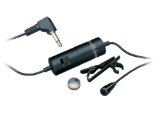Choosing A Make-Up School
Choosing A Make-Up School
When my wife suggested make-up as a career, twenty-six years ago, there where few schools to choose from at that time. Since then, several have opened in every major city across North America; one of the many off-shoots of the multi-billion dollar industry.
I myself have never gone to an official school and had to go through the expense of learning by trial and error. As the industry evolved I found at one point I had to take a few classes to modify my skills so I could keep current and employable in the ever changing business. In the last fifteen years, I have had the opportunity teach for a number of them and even designed a few curriculums. Like any new endeavor you have to do some research before deciding which school best suits your personal needs.
If you have no prior experience many offer a six to eight month blanket course which covers most facets of the make-up industry in general. There is bridal, fashion, television & film, out of kit make-up effects, special effects which would encompass prosthetics and a small segment on hair. These courses were created to help you, as a potential student, to decide which area you would like to specialize in. No make-up course qualifies you to be an expert it is only by extensive practice and experience do you acquire those credentials. Until someone actually pays you for your craft you are only practicing.
Here are a few things to consider and too enquire about before making a final decision:
1. WHO IS THE INSTRUCTOR AND HOW LONG HAVE THEY WORKED IN THE INDUSTRY?
Any legitimate school will offer up the instructor’s credentials or a site where they can be found. You would want a teacher with at least five years professional working experience. In that time they would have honed their craft and would be current with what is happening in the industry. Part of their job is to help you to follow in their footsteps and secure your own position. Some schools recycle graduating students who were top of their class in order to keep costs down. These should be avoided.
2. IF YOU HAVE PRIOR EXPERIENCE OR HAVE DECIDED ON A DIRECTION, CAN YOU TAKE ONLY CLASSES THAT PERTAIN TO THAT FIELD?
Some schools have an all or nothing policy. These institutions are more interested in lightening your wallet than helping you attain your goals. If you are interested in pursuing a career in special effects make-up you are not required to know bridal or fashion make-up to apply prosthetics.
That said, if you are interested in out of kit make-up effects for film and television it would be advantageous to have a background in straight make-up to better understand what you are doing. Remember every show has straight or normal make-up not every show has make-up effects. Your ultimate goal is to stay employed and the more you know or broader your skill set the greater chance you have of securing a position and holding on to it. Many reality shows or non-union docu-drama reenactment series require you to do most everything, even hair. Due to budget restraints they must keep personnel down. In Europe it is standard to be able to do both hair and make-up. In North America the two skills have been separated, the trend is to now adopt the European ways. These are the shows that use new artists trying to break into the industry,
In the same respect someone seeking a career in fashion or bridal make-up should not be forced to endure out of kit make-up effects or special effects. If the school is a business that cares about helping you they will have or adapt a package that works for you.
3. WHAT DOES A TYPICAL COURSE ENCOMPASS?
Every course should be divided into a two part component of lecture and demonstration. Here the teacher discusses the make-up in detail explaining technique and products. Then they demonstrate the look using the aforementioned techniques and products. Afterward the students are required to physically reproduce the look under the instructor’s supervision. I have never met anyone who could learn by osmosis. You truly have to experience the work to understand it and only by repeated execution will it be perfected.
4. WILL TAKING THIS COURSE OR COURSES GUARANTEE ME ENTRANCE INTO A UNION OR EMPLOYMENT?
The obvious answer is NO. To enter any union you must first log a certain amount of hours as a daily permit artist so the members can meet you and see how you conduct yourself on set as well as check your work. After this period you may be invited to take the trade test for your category. This you will have to pay for and if you fail the fee is non-refundable. The point of it is to ensure that your skills are at the professional level required and you have reached the maturity and confidence to work on the multi-budgeted productions.
While some schools may be involved with placing students on volunteer projects or field calls for student films, music videos and the likes. None are employment agencies. That is your job and one that will continue until the day you decide to retire.
In truth when seeking a make-up job your choice of school has little bearing under most circumstances. You will be judged on the quality of your work presented in your portfolio. (Note I said quality not quantity.) That combined with your personal appearance, confidence and attitude will be what ultimately lands you the position. If seeking a career in television or film, consider that with the advent of HD it is even more important that you master your technique. For as it has always been and will continue to be, time is money. So not only do you have to be good you must be quick.
Randy Daudlin is the author of Hurt ‘Em Reel |Good, a reference book for anyone asked to create basic make-up effects. Since 1983 he has been involved in the film and television industry successfully running Illusions Unlimited Inc. As an Instructor/Trainer he has taught at Complections International in London, England, and in Canada at The School of Make-up Art, The School of Professional Make-up Art, and George Brown College. For more information about Randy and his book, please visit http://www.twogruesomepublishing.com.
Article Source:
http://EzineArticles.com/?expert=Randy_A_Daudlin

Early Studios Of Indian Cinema (100 Years Of Bollywood). With the advent of film studios, film making in India developed a professional outlook. Notable film studios like Prabhat Film Company, Imperial Films and Bombay Talkies turned out to be the milestones in the business of film-making. Regular Facebook Updates www.facebook.com Twitter Updates twitter.com
What a feeling _ Musical of the film 'Flashdance' to make its way to Broadway …
Producers said Tuesday that the stage adaptation of the 1983 hit movie about a working-class Pittsburgh girl with dreams of becoming a professional ballet dancer hopes to boogie into New York in August 2013. Loading… Comments · Weigh In · Corrections?
Read more on Washington Post
Audio-Technica ATR-3350 Lavalier Omnidirectional Condenser Microphone
- Element Of Condense, Polar pattern, Omnidirectional
- Freq resp: 50 Hz 18,00 Hz, Imp: 1000 ohm +/-30%
- Omni pickup pattern offers full coverage
- no adapter included, mics are mono
Audio-Technica’s newscaster-style omnidirectional ATR3350 lavalier is engineered for intelligible, accurate voice reproduction. This high-quality condenser is ideal for video use, and is a favorite choice for aerobics/dance/sports instructors. Its low-profile design assures minimum visibility.Audio-Technica’s newscaster-style omnidirectional ATR3350 lavalier is engineered for intelligible, accurate voice reproduction. This high-quality condenser is ideal for video use, and is a favorite choice
List Price: $ 39.95
Price: $ 19.90
Sony NEX-EA50EH is a professional NXCAM Camcorder with a large format Exmor™ APS-C HD CMOS sensor and interchangeable E-mount lens system providing exceptional creative freedom when shooting both Full HD movies and high-quality still photos. It is supplied with the newly developed SEL18200PZ 18-200mm Power Zoom E-mount lens providing auto focus, continuous variable iris and Optical Steady Shot™ image stabilization with Active Mode, making it ideal for shooting moving images. Film-makers can achieve a constant zoom speed and smooth slow zoom, both of which can be difficult to accomplish with manual zoom lenses. An innovative design with an extendible shoulder-pad allows you to switch between handheld and shoulder-mount operation as required, with no need for additional accessories.



